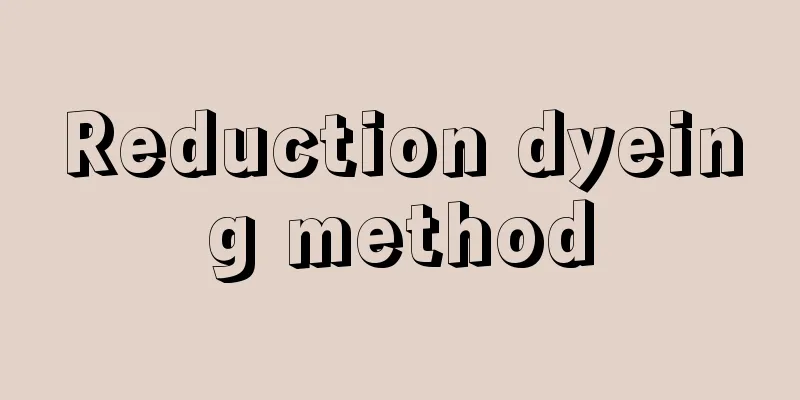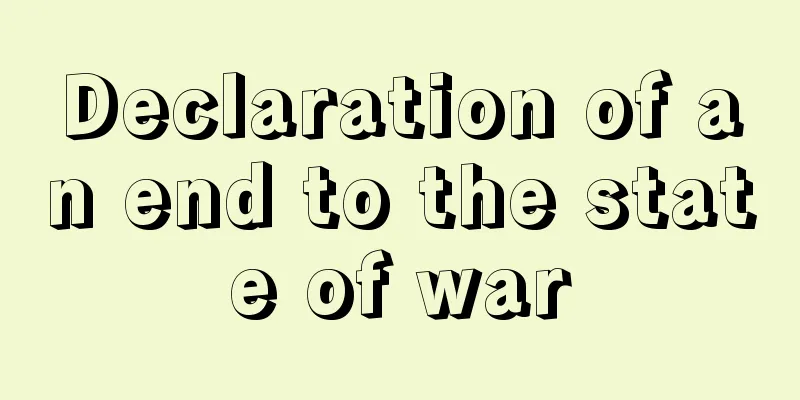Anomie (English spelling) anomie French

|
A state of chaos caused by the instability, relaxation, or collapse of social norms, or a state of unregulated desires and actions of members. The term is said to originate from the Greek word νομος, which means "lawlessness." It became obsolete in the Middle Ages, but was used by the French philosopher Guyot and was later revived as a sociological term by sociologist Durkheim. He used the concept to describe abnormalities in the division of labor in "Discourse on the Division of Labor in Society" (1893) and to describe types of suicide specific to modern society in "Suicide" (1897). Since then, it has attracted the attention of 20th century sociologists and social psychologists, and has become a concept that is often relied upon to analyze and describe various phenomena such as social disintegration, disintegration of values, and alienation. According to Durkheim, if the division of social labor proceeds normally, the interdependence of various social functions will strengthen and organic solidarity will be formed. However, in the reality of modern Western society, unregulated industrialization has led to disintegration of various functions rather than interdependence, and conflict and strife based on the survival of the fittest rather than organic solidarity. In "The Division of Labor in Society," this state is described as anomie. On the other hand, anomie is also a pathology that manifests itself at the level of the actions and consciousness of individual people. In "Suicide," Durkheim focuses on the phenomenon in which the disruption of the value norm system caused by rapid industrialization leads to unregulated desires in individuals, and he emphasizes this as one of the social conditions for the occurrence of suicide. This type of suicide is called anomic suicide. The importance of this concept of anomie has been reaffirmed and its meaning expanded as the 20th century experienced the emergence of the contradictions of capitalism, the rise of fascism, and the rise of mass society. S. de Gresia distinguishes between two types of anomie depending on the type of crisis situation that a society's belief systems are in. In other words, he calls a simple anomie a situation in which multiple belief systems are simply in a state of conflict or conflict, and an acute anomie a general loss of guiding principles caused by the sudden collapse of a dominant belief system, and he focused on the political and sociological implications of each. In addition, American R. K. Merton defined anomie as the weakening of behavioral norms caused by the disintegration of a society's cultural goals and institutional means, and said that in such cases, deviant behavior is likely to occur among its members. For example, in modern American society, while the value of "monetary success" is praised as a cultural goal, compliance with institutional means is not emphasized to the same extent, resulting in frequent deviant behavior, and it is said that pressure is exerted to encourage this deviant behavior, especially among the lower middle class. Merton's observation opens up a new perspective in anomie theory in that it derives a typology of deviant behavior in relation to the cultural and institutional conditions of modern society. Many other sociologists, including McKeever, Riesman, Srouleaux, and Duvignau, are also attempting to develop the concept of anomie in their own way. In recent years, the concept of anomie has also been recognized as useful for analyzing and describing value conflicts in developing societies undergoing rapid industrialization. [Takashi Miyajima] "Suicide" by E. Durkheim, translated by Takashi Miyajima (included in "World Masterpieces 47", 1968, Chuokoron-Shinsha)" ▽ "Social Theory and Social Structure" by R.K. Merton, translated by Togo Mori et al. (1961, Misuzu Shobo)" ▽ "Alienation and Solidarity" by S. de Grezias, translated by Tomoo Sato and Akira Ikeda (1966, Keiso Shobo)" [References] | | | | | |Source: Shogakukan Encyclopedia Nipponica About Encyclopedia Nipponica Information | Legend |
|
社会的規範の動揺、弛緩(しかん)、崩壊などによって生じる混沌(こんとん)状態、あるいは成員の欲求や行為の無規制状態。語源的には、「無法律状態」などを意味するギリシア語のνομοςに由来するといわれる。中世には廃語になっていたが、フランスの哲学者ギュイヨーによって用いられ、さらに社会学者デュルケームによって社会学上の用語として再生された。彼は、『社会分業論』(1893)では分業の異常を、『自殺論』(1897)では近代社会に特有の自殺の型をそれぞれ記述するのにこの概念を用いている。以後、20世紀の社会学者や社会心理学者の注目するところとなり、社会解体、価値の不統合、疎外などさまざまな現象を分析し、記述する際にしばしば依拠される概念となっている。 デュルケームによれば、社会的分業が正常に進めば、社会の諸機能の相互依存関係が強まり、有機的な連帯が形成されると考えられているが、現実の近代西欧社会では、無規制的な産業化のために諸機能の相互依存よりも不統合が、有機的連帯よりも弱肉強食の対立・抗争が、むしろ支配的になっている。『社会分業論』では、このような状態がアノミーとして記述されている。他方またアノミーは、個々の人間の行為や意識のレベルに現象してくる病理でもある。デュルケームは『自殺論』においては、急速な産業化による価値規範体系の攪乱(かくらん)が個々人の欲求の無規制を引き起こすという現象に目を向け、これを自殺の発生の社会的条件の一つとして重視した。この型の自殺はアノミー的自殺と名づけられている。 このアノミーの概念は、20世紀社会における資本主義の矛盾の顕在化、ファシズム化、大衆社会化などの経験が積み重ねられるなかで、その重要性が再認識され、意味も拡大されるようになった。S・デ・グレージアは、一つの社会において信念体系の陥っている危機状況のタイプに応じて、2種のアノミーを区別している。すなわち、複数の信念体系が単に対立・葛藤(かっとう)の状態にある場合を単純アノミーsimple anomie、支配的な信念体系が一挙に崩壊することによって生じる指導原理の全般的な喪失を尖鋭(せんえい)アノミーacute anomieと名づけ、それぞれの政治社会学的な意味合いに注目した。 またアメリカのR・K・マートンは、一つの社会における文化的目標と制度的手段の不統合によって生じる行動規範の衰耗(すいこう)をアノミーと規定し、そのような場合、成員の間に逸脱行動が生じやすいとした。たとえば、現代アメリカ社会では、文化的目標として「金銭的成功」という価値が称揚される反面、制度的手段の遵守が同じようには強調されず、その結果しばしば逸脱行動が生じており、とくに下層中産階級にはこの逸脱行動を促す圧力が働いているとされる。マートンのこの考察は、現代社会の文化・制度状況とかかわらせて逸脱行動の類型論を導いているという点で、アノミー論に新たな視野を切り開いている。そのほかマッキーバー、リースマン、スロール、デュビニヨーら、アノミー概念の独自の展開を試みている社会学者は少なくない。 なお近年では、急速な産業化のなかに置かれている開発途上社会における価値の葛藤などを分析、記述する概念としても、アノミー概念の有効性が認められている。 [宮島 喬] 『E・デュルケーム著、宮島喬訳『自殺論』(『世界の名著 47』1968・中央公論社・所収)』▽『R・K・マートン著、森東吾他訳『社会理論と社会構造』(1961・みすず書房)』▽『S・デ・グレージア著、佐藤智雄・池田昭訳『疎外と連帯』(1966・勁草書房)』 [参照項目] | | | | | |出典 小学館 日本大百科全書(ニッポニカ)日本大百科全書(ニッポニカ)について 情報 | 凡例 |
<<: Anawrahta - Anawrahta (English spelling)
Recommend
City dweller
〘Noun〙① In ancient times, people who had the privi...
Karl XII - Karl
King of Sweden (reigned 1697-1718). In 1700, he st...
Asiatic wild ass
...Distributed in the arid regions of northeaster...
Haratama - Gratama, Koenraad Wolter
Year of death: 1888.1.19 (1888.1.19) Born: April 2...
Association - Rensou (English spelling) association
Also called the association of ideas. It refers to...
Honor Guard
…He was born in Chicago and grew up in New York, ...
"Edokko Shimbun" - Edokko Shimbun
…The other was the critical attitude of former Sh...
Otho, Marcus Salvius
[Raw] 32 [Died] 16 April 69. Roman emperor (reigne...
Arita Sarayama
...Chinese porcelain from the end of the Ming dyn...
Hudson, Rock
Born November 17, 1925 in Winnetka, Illinois [Died...
Old Testament Apocrypha
…The term was also used to mean books that should...
Menotti - Gian Carlo Menotti
Italian-born composer. After studying at the Mila...
Shozo Motoki
He was from Nagasaki. His pen name was Eikyu and ...
Music of Chance - Chance Music
Music in which the composer does not fix every det...
Amunemachin [Mountain Range] - Amunemachin
…Total length is about 400 km. In Tibetan, it mea...









